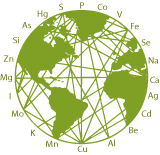Orthomolecular Therapy- why, when and where
According to Dr. M.Jensen, Past President of the American College for Advancement in Medicine and the Center for Preventive Medicine, Amherst, NH, USA "Dietary supplements, including vitamins, minerals, essential fatty acids, amino acids, flavonoids, herbs, and accessory food factors, are among the most valuable and safe substances for prevention and treatment of serious chronic and acute diseases associated with mortality, as well as everyday health problems that cause discomfort and disability. It is important to take adequate doses for their full benefits. Because they prevent deficiency diseases at low doses, they have acquired a reputation for being necessary only at these low levels."
He rightfully states that "Orthomolecular medicine is the restoration and maintenance of health through the administration of adequate amounts of substances that are normally present in the body. Nobel Prize winner Linus Pauling, one of the leading molecular chemists of the century, established this definition of orthomolecular medicine in 1968. The aging process is typically accelerated as a result of free radical exposure, frequent or chronic inflammation, and toxic exposures (such as to heavy metals or industrial and agricultural hydrocarbons). Reversing this process or slowing it down is one goal of orthomolecular therapy, along with treatment of health problems."*
More information about this natural treatment can be found in the articles listed here.
*Janson M. Orthomolecular medicine: the therapeutic use of dietary supplements for anti-aging. Clin Interv Aging. 2006;1(3):261-5. doi: 10.2147/ciia.2006.1.3.261. PMID: 18046879; PMCID: PMC2695174.
Healing nutrients
Was Linus Pauling right?
Nutrient therapy has few side effects and is cost-effective.
It is a root cause treatment that helps patients to improve their
well-being.
The concept of clinical orthomolecular therapy is the
answer to the requirements of our highly industrialized
industrialized era. This is characterized by progressive environmental pollution,
widespread, unbalanced factory nutrition
and the high stress levels of an increasingly
driven population. It is a therapy with few side effects
therapy that - as Pauling quoted - tries to heal with the right
molecules.
Read more here (German Article):
Nutritional Therapy for Long Covid
Acute respiratory distress syndrome (ARDS) is a key factor in the fatality outcome of COVID-19. Significantly increased oxidative stress due to rapid release of free radicals and cytokines (cytokine storm) are the hallmark of ARDS, which leads to cellular injury, organ failure and possible death. Research by Prof. Michael Gonzales and colleagues reported cases in which early use of high dose intravenous vitamin C (HDIVC) along with other nutrients produced a positive outcome in patients. Neither intravenous nor oral administration of high dose Vitamin C could be associated wwith significant side effects.
Micronutrient Deficiencies in ADHD: A Global Research Consensus
Zinc deficiency represents one of the most-recognized micronutrient deficiencies linked to ADHD symptoms. With key roles in enzyme activation and neurotransmitter synthesis, zinc is critical for regulation of dopamine, norepinephrine, serotonin, and gamma aminobutyric acid (GABA). Globally, zinc deficiency is a significant concern; at least 17% of the world’s population is at risk, and research suggests that levels of zinc in the food supply may be inadequate to supply needs.
Greenblatt JM, Delane DD (2017) Micronutrient Deficiencies in ADHD: A Global Research Consensus. J Orthomol Med. 32(6)
Cytokines and Inflammation
Cytokines are a group of small proteins, peptides, or glycoproteins that are secreted by specific cells of the immune system. They function as chemical messengers that mediate and regulate immunity, inflammation, and hematopoiesis.
Cytokine release syndrome (CRS) happens when your immune system responds to infection or immunotherapy drugs more aggressively than it should. CRS symptoms include fever, nausea, fatigue and body aches.
Cytokine storms may develop as a result of infection or affect people with autoimmune disease or those who are receiving immunotherapy. Prompt treatment is essential, as symptoms can worsen quickly.
For more information https://my.clevelandclinic.org/
Also read this article by: Tang XD, Ji TT, Dong JR, Feng H, Chen FQ, Chen X, Zhao HY, Chen DK, Ma WT. Pathogenesis and Treatment of Cytokine Storm Induced by Infectious Diseases. Int J Mol Sci. 2021 Nov 30;22(23):13009. doi: 10.3390/ijms222313009. PMID: 34884813; PMCID: PMC8658039.
https://www.ncbi.nlm.nih.gov/pmc/articles/PMC8658039/
